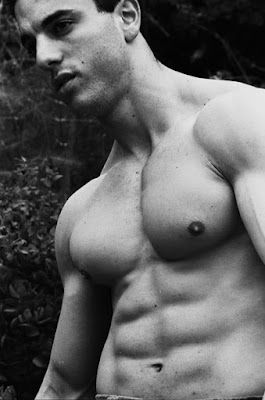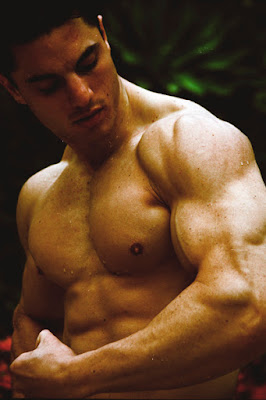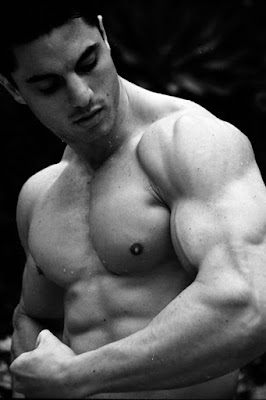
This is another "back catalog" photo that I scanned recently for my book submission.
Bryan was a New York model I shot at the tail end of a business trip several years ago. A photographer friend in New York found a studio a few blocks west of Broadway for me to rent for the shoot.
The owner probably never intended the make-up area of his studio to be used in a shoot, but the setting drew my attention and we shot several frames with Bryan sitting in front of the mirror and on top of the make-up table.
This was also very early in my experience with lights, so although I didn't really intend it, the lights created a spot light effect instead of broad, open lighting. However it gave the scene a night-time effect that seems appropriate in some cases.
The second shot shows off Bryan's amazing chest.

















